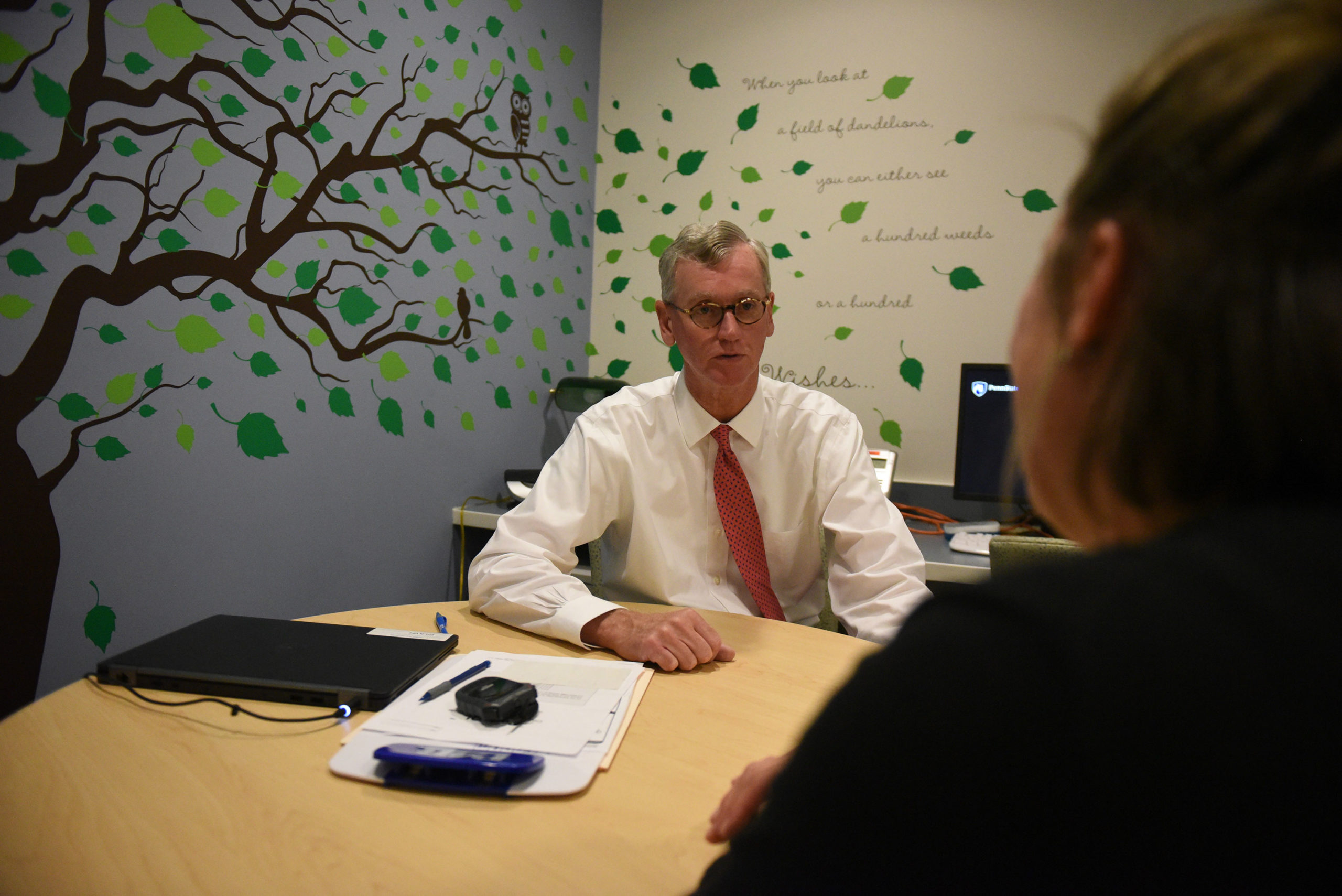Post-traumatic stress disorder in survivors of childhood cancer

Learn what PTSD looks like and what you can do about it
By George Blackall, PsyD, MBA
With five-year survival rates of childhood cancer exceeding 80 percent, there are currently 350,000 survivors in the United States, and that number is expected to grow. This is encouraging given that there was a time, not that long ago, when a diagnosis of childhood cancer was almost inevitably fatal.
As the number of survivors grows, so too does our understanding of the impact of childhood cancer on individuals and their families. While most studies show that survivors of childhood cancer do well in life, there is evidence that some survivors may struggle with their psychological health.
Post-traumatic stress disorder
Some survivors experience what is known as post-traumatic stress disorder (PTSD). PTSD is a psychological condition that can develop instantly or over time as a result of being exposed to a life-threatening experience, either directly or as a witness. It results in feelings of helplessness or fear. The post-traumatic stress symptoms that individuals may experience include:
- Recurrent, unwanted and intrusive thoughts about the experience
- Recurrent distressing dreams related to the experience
- Flashbacks to the experience
- Avoidance of places or things associated with the experience
- Emotional numbing
Many people who experience traumatic events will experience some or all of these symptoms, and this can be a normal part of the psychological healing that takes place after such an experience. Sometimes, however, symptoms either do not go away or become so intense that they disrupt the daily life of the affected person. In those cases, it may be helpful to seek professional help.
When should I seek help?
As a general guideline, a person should seek professional help for PTSD if symptoms last longer than one month, if many of the symptoms listed above are being experienced, and if the symptoms interfere with day-to-day functioning. Simply said, if you feel “stuck” in your efforts to feel better, that may be a sign that it is time to seek help.
What should I expect if I seek professional help?
If at all possible, you should try to find a professional who has experience working with survivors of childhood cancer and their families. You should expect a compassionate and skilled therapist who will reassure you that what you are experiencing is normal. The therapist will likely take a thorough history and then talk with you about goals for what you would like to change in your life.
Most therapies for PTSD involve a combination of helping people learn techniques for self-soothing and change the way they think about the responses they are having to the traumatic experience. In addition, your therapist will likely help you explore the notion of post-traumatic growth. Post-traumatic growth is the flip side of PTSD, in that people who experience trauma in their lives are able to find growth, meaning and purpose in their response to the experience. Individuals who have PTSD related to their experience of childhood cancer can improve their lives, and Four Diamonds is here to help.
How can Four Diamonds help me?
If you or a family member is experiencing post-traumatic stress symptoms, consider contacting your social worker or me, Dr. George Blackall, at gblackall@pennstatehealth.psu.edu or 717-531-6148. I work with many survivors and am happy to talk with you about what might be helpful.
As science continues to improve outcomes of childhood cancer patients, we continue to be dedicated to improving survivors’ quality of life.
Did you know?
Mindfulness is the practice of gently training our attention in order to strengthen our ability to make a choice about where our attention goes and how we respond to life’s inevitable difficulties.
Wellness tip: Consider substituting time on social media with a mindfulness app. You can use the websites or apps listed below while waiting for appointments, before going to bed or for a short break from work or studies. Designed to be brief in length, you choose which meditation practice works best for you based on how you’re feeling physically and mentally.
Try out these apps or websites to support your mindfulness practice:
Studies demonstrate that a regular mindfulness practice reduces stress and anxiety, boosts the immune system, increases self-control and willpower and even increases our empathy and compassion. It certainly won’t solve all of the problems that life presents, but you may find it easier to cope with those challenges.
If you're having trouble accessing this content, or would like it in another format, please email the Penn State College of Medicine web department.
